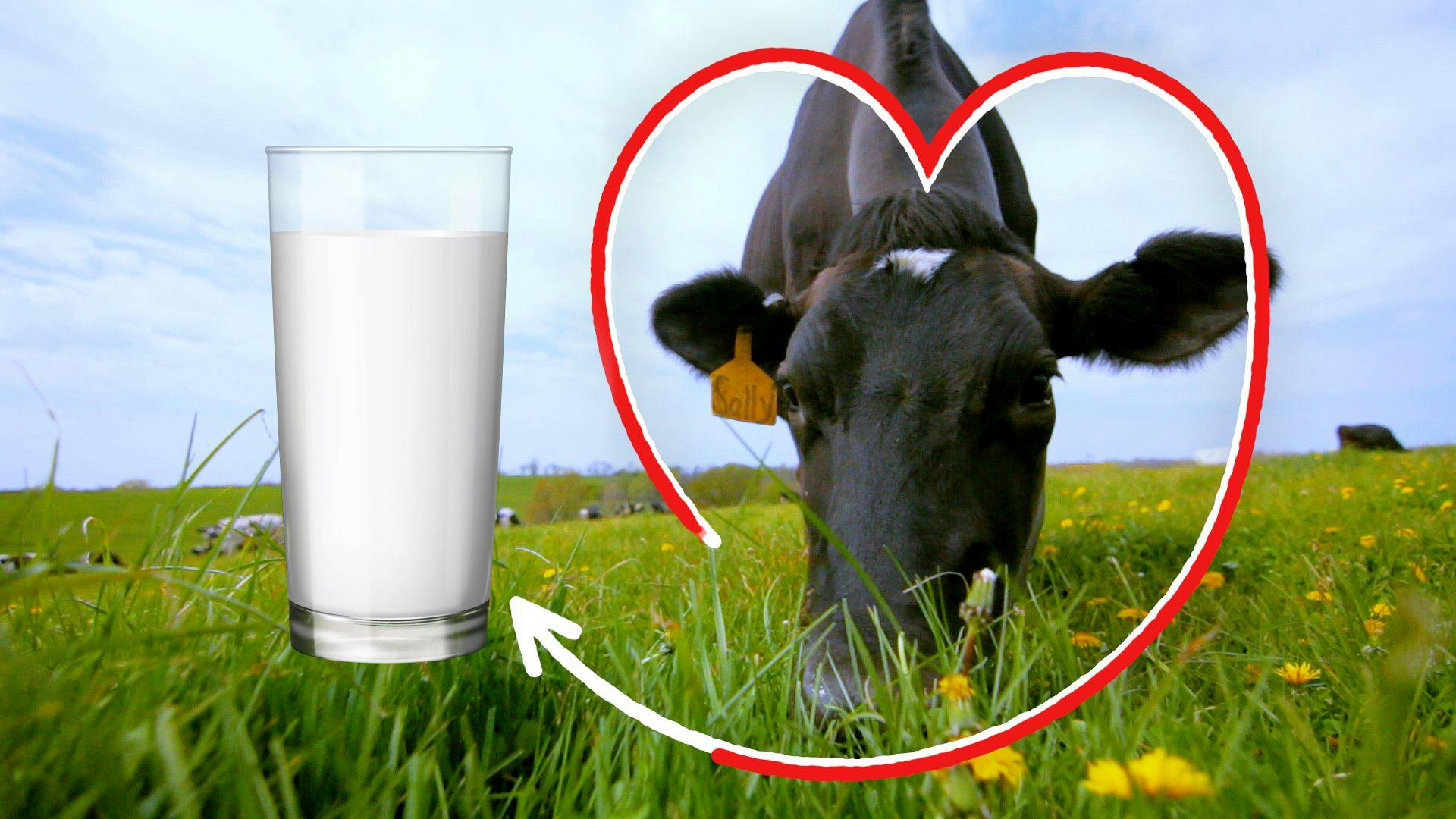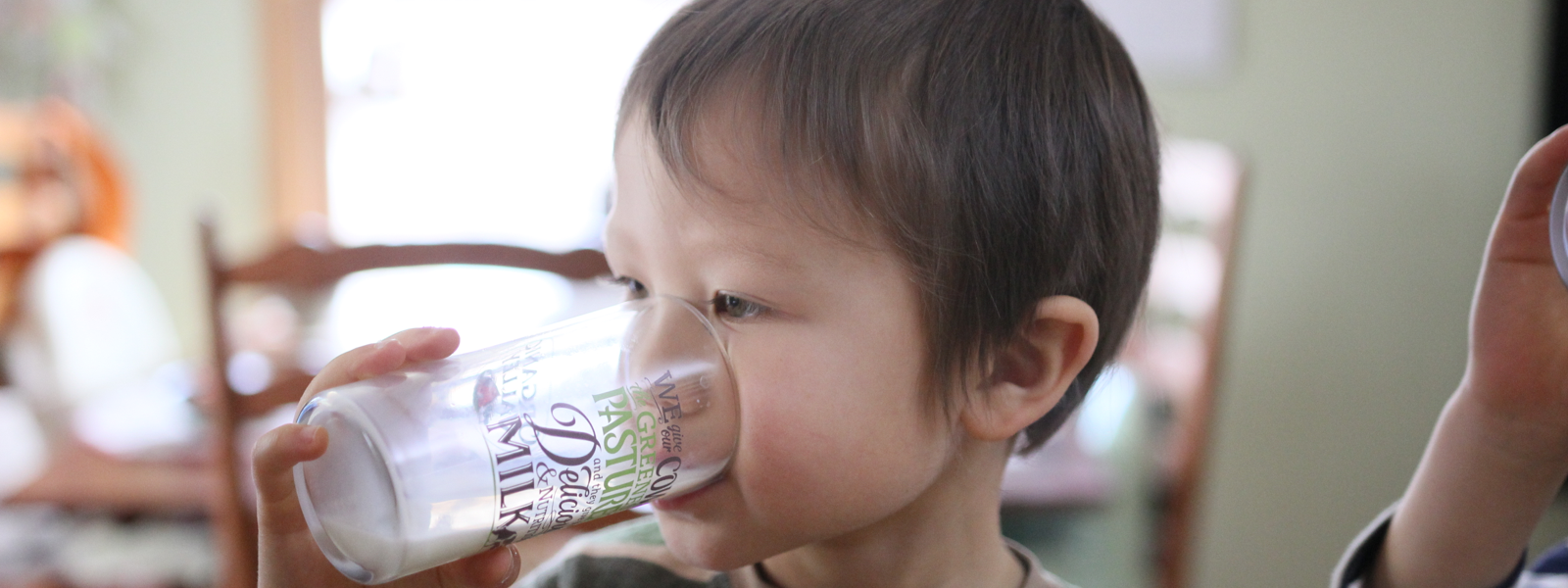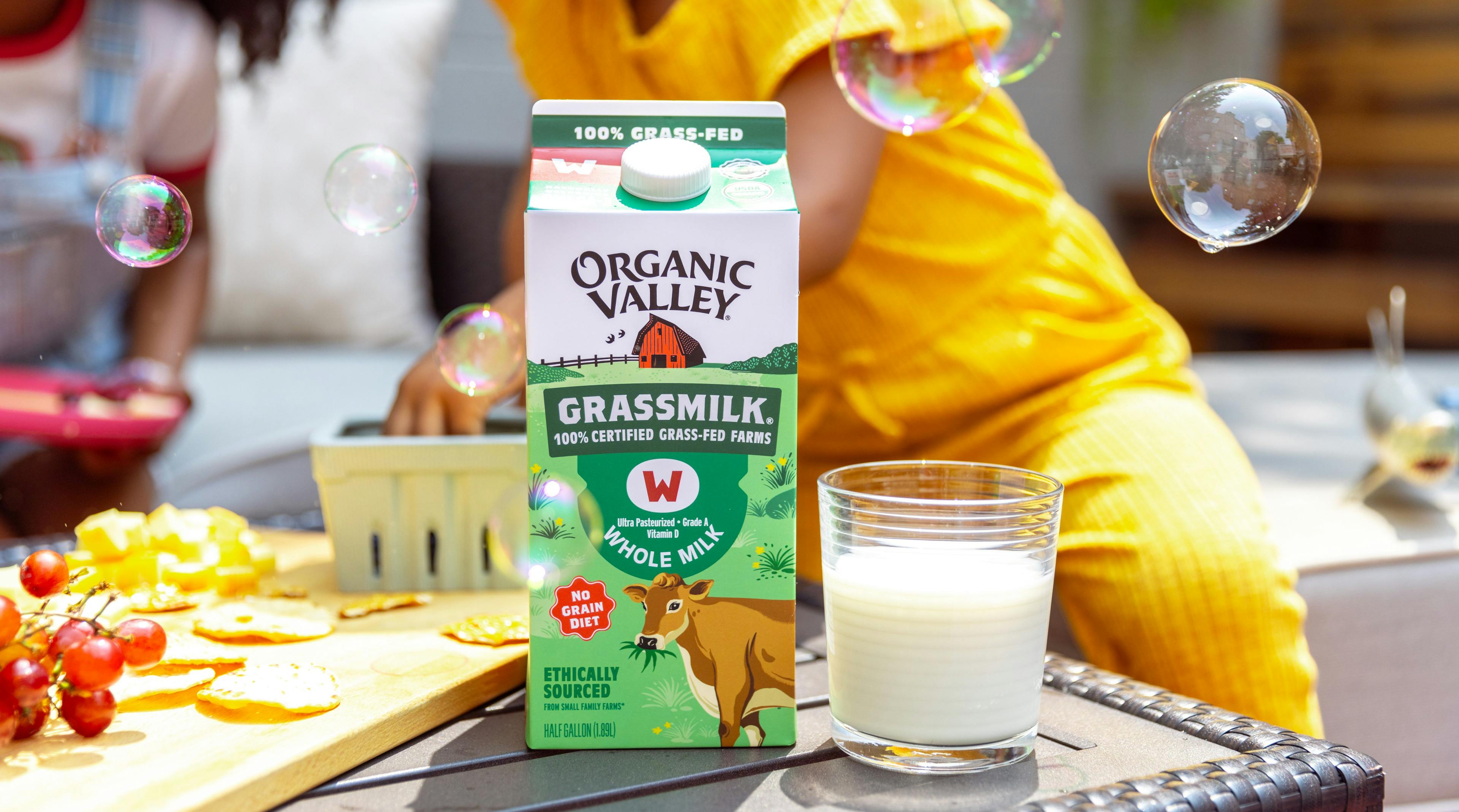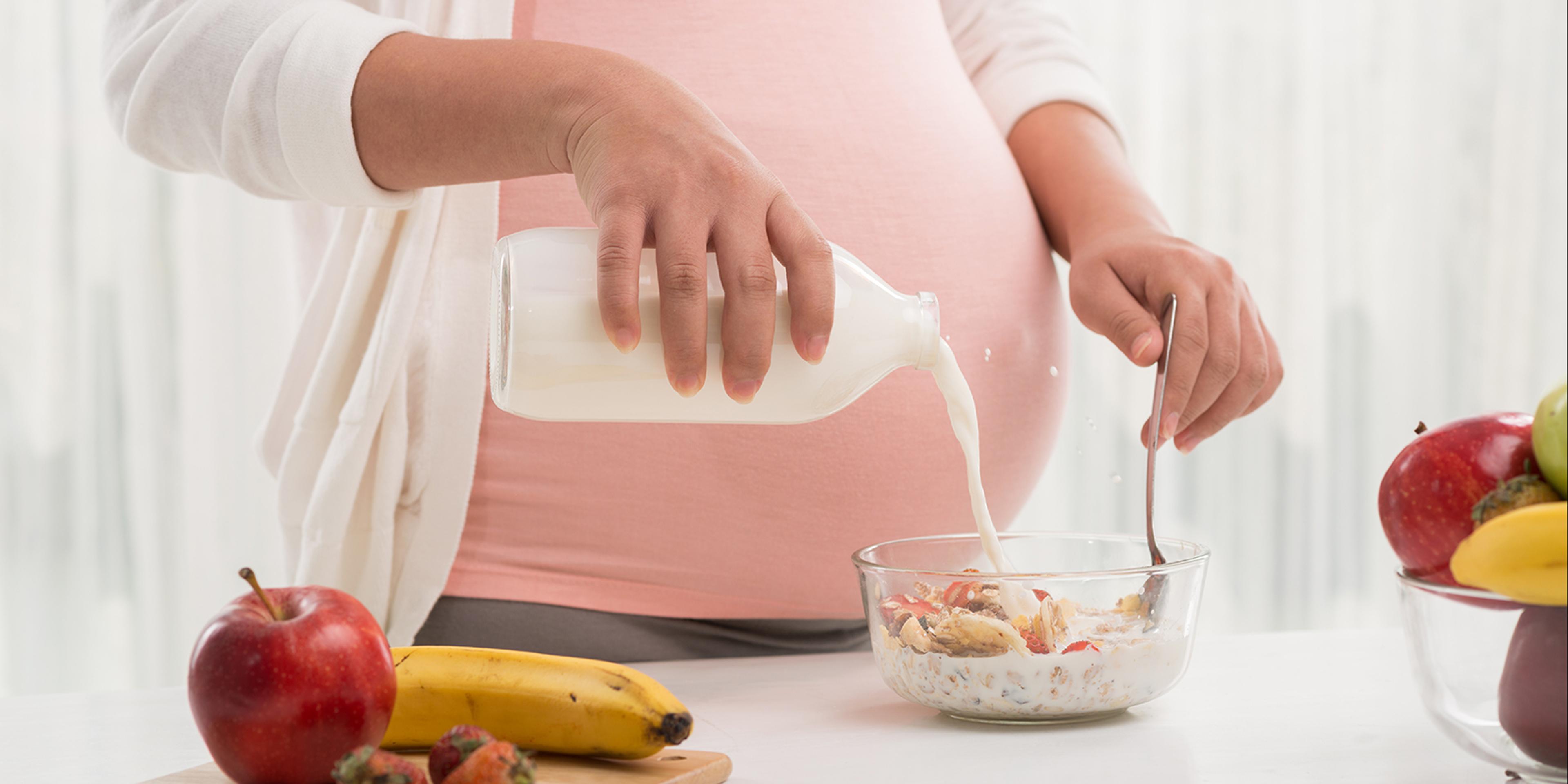
Food
Milk for Mom and Mom-to-be
When people begin to eat for two, they tend to pay more attention to the nutrition that they are putting into their bodies than ever before. After all, many of the nutrients that Mom eats during pregnancy and lactation play a pivotal role in Baby’s growth and development.
As a prenatal registered dietitian and certified lactation counselor, I have counseled countless people who are utterly confused about milk consumption during pregnancy and lactation. From trying to understand which type of milk they should consume to whether they should even be drinking milk at all, the questions start to flow once those two pink lines show up on the pregnancy test.
While many pregnant and breastfeeding moms are extremely aware that they should be eating their fruits and veggies, they may not be as clear about dairy milk intake recommendations. I’m sharing a host of information here, but as always, it’s a good idea to speak with your physician if you have further questions about your nutritional needs during this important time.
Do I need to drink milk while pregnant or breastfeeding?
Wouldn't it be nice if addressing whether a new or expecting mom must drink milk is a simple "yes" or "no" answer? Unfortunately, answering this question is not so simple.
While dairy milk is full of essential nutrients that help support you and your baby's health, certain scenarios preclude people from drinking it, such as breastfeeding a baby with a diagnosed cow's milk protein allergy to following a diet that eliminates dairy. In those cases, supplementation is often required to fill nutritional gaps.
But for the rest of the population that does not have to restrict dairy milk for any reason, it is recommended to enjoy a glass or two of milk to make sure you and your baby are getting adequate riboflavin, vitamin D, phosphorus, protein, and many other essential nutrients that are vital during these stages of your lives.
In addition, infants whose mothers consumed cow's milk and dairy products while breastfeeding may have a lower risk of food allergies. Cow's milk may stimulate a child's immune system and help develop a tolerance for different foods.

Photo contributed byAmy Rosoff Davis.
How much calcium do I need during pregnancy and lactation?
The National Academy of Sciences recommends that adults who are pregnant or breastfeeding consume 1,000 milligrams of calcium each day. One serving of Organic Valley milk contains between 20% to 30% of this mineral’s recommended value, depending on the fat level, so including one or more glasses of milk in your pregnancy or breastfeeding diet can help you reach your daily calcium intake very easily.
Calcium is a mineral that plays an important role in bone health. Not taking in enough of this key nutrient throughout your life can put you at risk for weak bones or osteoporosis, but it plays an especially pivotal role during pregnancy and breastfeeding.
During pregnancy, the baby needs calcium to develop its skeleton. If the mother doesn't take in enough calcium, the baby gets what it needs by drawing from Mom's calcium reserves in her bones, thus potentially weakening Mom's bones. Making a point to have a daily glass of milk can help fuel your body with enough calcium to support your own bone health during pregnancy while your baby's bones are forming.
Breastfeeding also affects a mother's bones, as data suggests that breastfeeding mothers lose 3% to 5% of their bone mass during lactation. This change in bone mass may be a result of the baby's increased need for this mineral, Mom's changing hormones, or both.
So along with proper exercise and a smoke-free lifestyle, taking in enough calcium from foods like milk, cheese, tofu, and spinach is paramount to protecting Mom's bones while supporting Baby’s skeletal development.
Which milk fat level should I choose when pregnant or breastfeeding?
Deciding which type of milk to enjoy during pregnancy and lactation depends on many factors, including your pre-pregnancy weight, calorie needs, current diet, and more. All fat levels will give you a boost of important vitamins and minerals, so you really can't go wrong with your choice nutritionally. Just keep in mind that calorie needs tend to increase when people are pregnant and breastfeeding, and a baby needs high-quality fats for its own development, so leaning on skim milk may not be the best choice for many people during this stage of life.
The primary differences between the varieties are the fat and calorie content. The fat content varies as follows, per one serving of milk:
- Skim: 0 grams of fat.
- 1%: 2.4 grams of fat.
- 2%: 5 grams of fat.
- Whole: 8 grams of fat.
As a result, the different varieties of milk will also vary in calorie contents. Skim milk contains the least amount of calories, while whole milk contains the most. You and your doctor can decide which milk fat level is right for you depending on what stage of pregnancy or breastfeeding you’re experiencing.
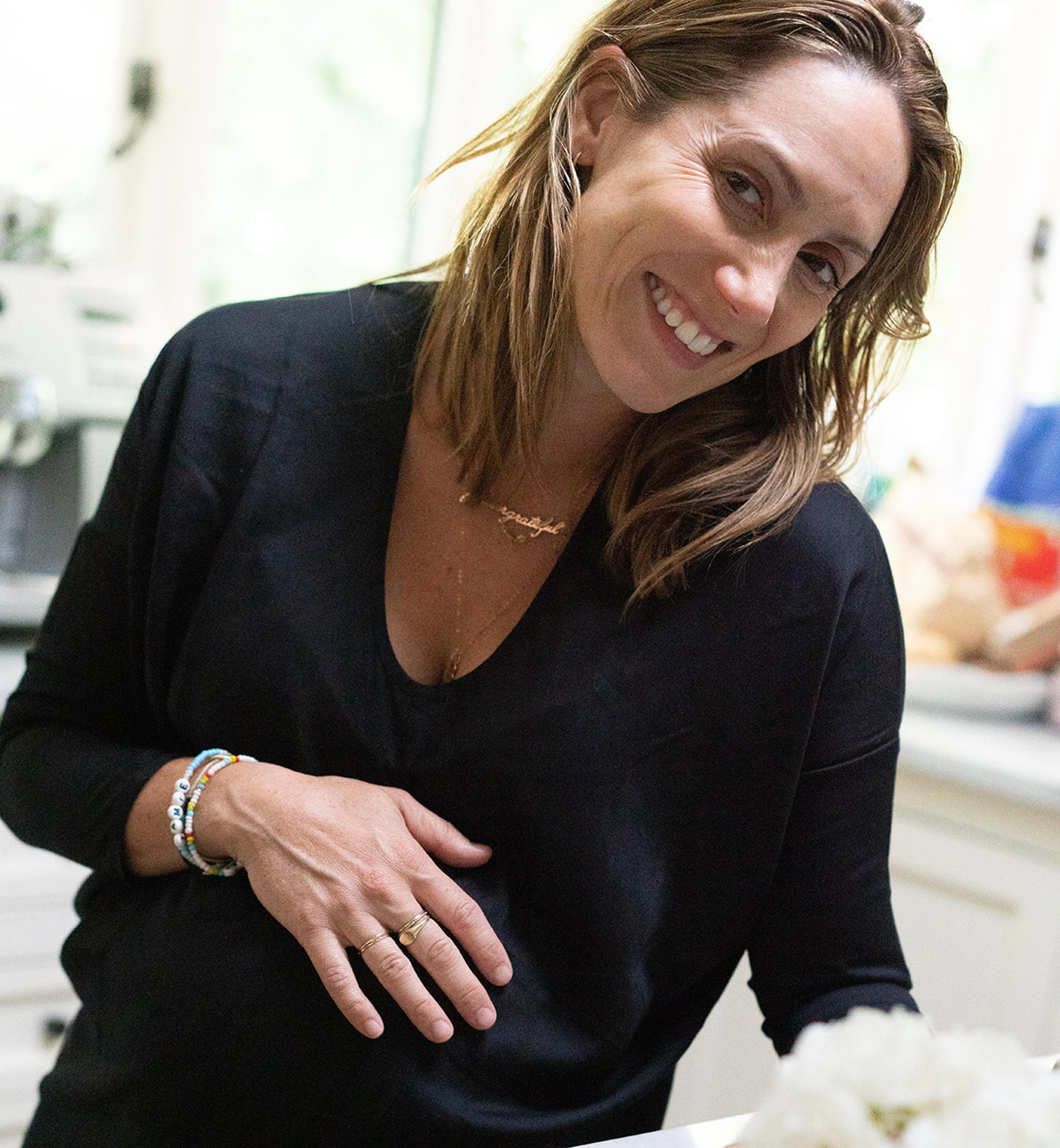
Photo contributed byAmy Rosoff Davis.
What about organic vs. conventional milk when pregnant or breastfeeding?
Both organic and conventional milk will fuel your body with 13 essential nutrients and a satisfying taste. But there is an important difference that new and expecting mothers should consider: No synthetic pesticides or added hormones are used in the process of producing organic milk, thus limiting the potential exposure of these items to your child.
Data shows that those who switch to an organic diet, including choosing organic milk, had reduced pesticide residues in their urine analysis, suggesting that an organic diet may reduce exposure to a range of pesticides. Additionally, according to a small study, pesticide residues can be detected in the umbilical cord, meaning that pesticide residues may pass to the infant in utero.
Exposure to certain chemicals in the womb can be more harmful than exposures later in life because the baby's "detox" system (liver, kidneys, etc.) isn't fully developed during pregnancy, among other reasons.
Choosing organic milk can help a pregnant or nursing mom feel confident knowing that she will not expose her little one to certain chemicals while fueling her body with important nutrients.
Related: Advice from a Dietitian: Why You Should Choose Organic and Grass-fed Dairy

Photo contributed byAmy Rosoff Davis.
Which milk should I drink when pregnant or breastfeeding?
Milk is a simple, affordable, and delicious source of essential vitamins and minerals, protein, healthy carbs, and in many cases, fats that contain beneficial omega-3 and CLA fatty acids. And when you choose organic, you reduce your and your baby’s exposure to potentially harmful substances through food.
The beauty of having so many options is that you can choose the milk that works best for your own needs. Here are a few Organic Valley milk options that I recommend to those who are pregnant or breastfeeding.
Organic Valley Grassmilk®
Choosing 100% grass-fed Organic Valley Grassmilk will not only give you an organic source of nine essential vitamins and minerals, but it will also supply CLA and omega-3 fatty acids—nutrients that have been linked to brain and eye health. This milk is an optimal choice for pregnancy and lactation for a clean and nourishing beverage free from GMOs, synthetic hormones, toxic synthetic pesticides, and antibiotics.
Organic Valley Lactose-Free Milk
If you are a mama who struggles with lactose intolerance, Organic Valley Lactose-Free milk is an excellent choice that will fuel your body without the tummy troubles—a perfect option to explore instead of plant-based beverages that may be missing key nutrients or contain added sugars.
Organic Valley Skim Milk
If your health care provider has concerns about your weight and has told you to limit your caloric intake, Organic Valley Skim Milk may be your best bet. Loaded with essential nutrients but without the additional fat and calories, this milk can be a perfect solution. It also comes in a fortified option, which has increased protein and calcium from the addition of organic nonfat milk powder (essentially, milk with more milk in it!). Learn more about Organic Valley’s fortified milk here.
Drinking milk during your pregnancy and breastfeeding journey is a healthy habit that can be enjoyed every day for a simple boost of essential nutrients. You can find Organic Valley’s organic and delicious milk on AmazonFresh or at stores nearly everywhere nationwide. Join our email list to receive a coupon to help support your needs during this special and nutritionally unique time in your life.
Lauren Manaker is an award-winning registered dietitian and book author. After spending over 15 years working in health care and industry, she started a consulting business focusing on reproductive, pediatric and women’s health. Lauren resides in Charleston, South Carolina, with her husband and young daughter. In her spare time, she can be found enjoying an outdoor oyster roast in the cooler months, doing anything on the water in the warmer months, and practicing yoga year-round.
Related Articles
- Tags:
- organic nutrition,
- family & kids,
- children














